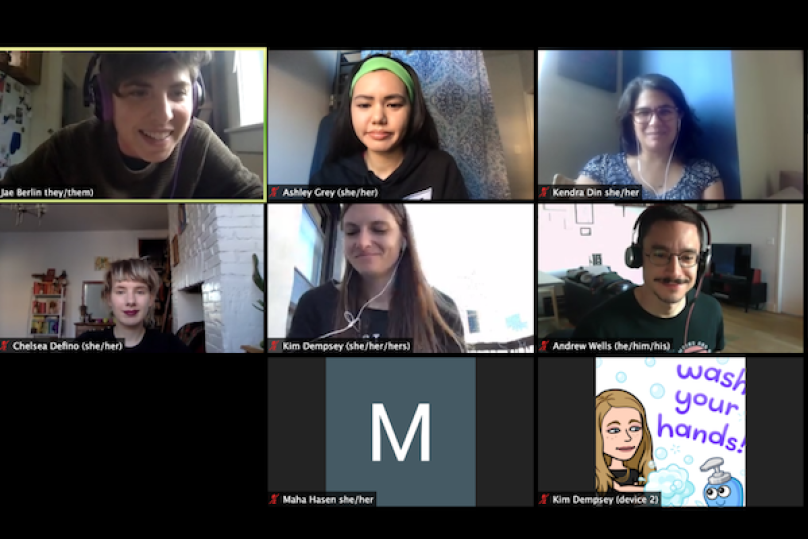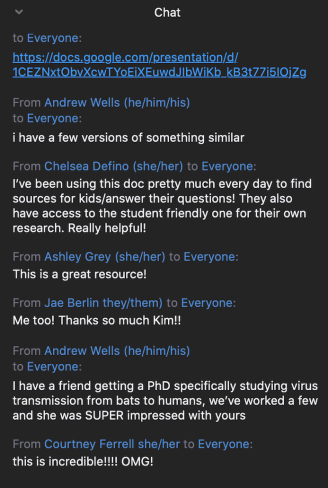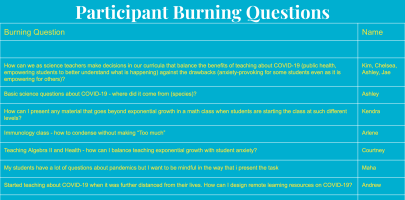
How are teachers teaching about COVID-19, and how will they do so in the future? “In the future, teachers can use this crisis as a jumping off point to emphasize how important it is to understand the scientific process and to create a sense of urgency around understanding experimental design,” said MƒA Early Career Teacher Kimberly Dempsey.
“Right now teachers must strike a balance between providing students an academic forum to study the pandemic they're living through while also giving them a break to disconnect from what may be a very stressful and frightening experience,” added MƒA Master Teacher Jae Berlin.
As our community continues to innovate by moving professional learning workshops online, both Kimberly and Jae recently led an MƒA virtual session on “Teaching about Pandemics During a Pandemic.” In it, a dozen MƒA teachers explored the unique teaching opportunities the coronavirus presents for educators.

During the course, teachers shared COVID-19 questions, ideas, and resources they’ve developed over the past few weeks, including Kimberly’s Educational Resource Library that offers educators, parents, and interested citizens a wide variety of multimedia resources about the coronavirus, from news articles and videos to podcasts and scientific literature. Jae presented lesson plans they’ve implemented in their virtual classroom, covering information on how viruses work, holding discussions on the benefits of social distancing, and sharing reframed DNA worksheets that now make connections to coronavirus. Other participants, like MƒA Early Career Teacher Chelsea Defino, talked about her experience co-leading a department-wide, six-week project scaled up and down for different grade bands, which consisted of guided research, discussion posts, and Zoom meetings surrounding the disease that will culminate in a student-created COVID-19 public awareness campaign.
Throughout the course, MƒA teachers brainstormed burning questions that they and their students are currently wondering or wanting to talk more about. They broke out into smaller groups to discuss the most pressing issues, such as designing curriculum with choice and flexibility, differentiating assignments for students with varying access to technology (including none), and making curricula responsive to student feedback.
“In the future, teachers can use this crisis as a jumping off point to emphasize how important it is to understand the scientific process and to create a sense of urgency around understanding experimental design."
These teacher leaders are pushing forward with the philosophy that though they may not be experts of the collective situation, they are each experts of their own experiences. This virtual professional learning opportunity is just one of many ways MƒA teachers are using their experiences to stay connected during these trying times.
“Virtual MƒA workshops give teachers the ability to see each other's faces and feel connected to those outside of our school community. It’s just as important, if not more, as it was before remote teaching,” said Kimberly.
